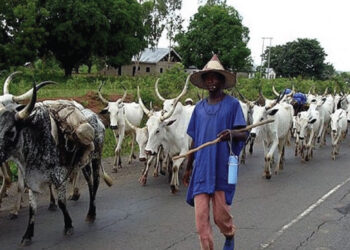Niger Republic’s new military junta has asked for help from the Russian mercenary group, Wagner as the deadline nears for it to release the country’s ousted president or face possible military intervention by the West African regional bloc.
Voice of America reports that the request for Wagner’s help came during a visit by a coup leader, General Salifou Mody, to neighbouring Mali, where he contacted someone from Wagner, Wassim Nasr, a journalist and senior research fellow at the Soufan Center, told The Associated Press. He said three Malian sources and a French diplomat confirmed the meeting first reported by France 24.
“They need [Wagner] because they will become their guarantee to hold onto power,” he said, adding that the group is considering the request. A Western military official, speaking on the condition of anonymity because they were not authorized to comment, told the AP they have also heard reports that the junta asked for help from Wagner in Mali.
Niger’s junta faces a Sunday deadline set by the regional bloc known as ECOWAS to release and reinstate the democratically elected President Mohamed Bazoum, who has described himself as a hostage.
Defense chiefs from ECOWAS members finalized an intervention plan Friday and urged militaries to prepare resources after a mediation team sent to Niger Thursday wasn’t allowed to enter the city or meet with the junta leader, General Abdourahamane Tchiani.
After his visit to Mali, run by a sympathetic junta, Mody warned against a military intervention, vowing that Niger would do what it takes not to become “a new Libya,” Niger’s state television reported Friday.
Niger has been seen as the West’s last reliable counterterrorism partner in a region where coups have been common in recent years. Juntas have rejected former colonizer France and turned toward Russia. Wagner operates in a handful of African countries, including Mali, where human rights groups have accused its forces of deadly abuses.
One can’t say there’s a direct Russian implication in Niger’s coup, but “clearly, there’s an opportunistic attitude on the part of Russia, which tries to support destabilization efforts wherever it finds them,” French foreign affairs ministry spokesperson Anne-Claire Legendre told broadcaster BFM Friday. For days after Niger’s junta seized power, residents waved Russian flags in the streets.
The spokesperson described Wagner as a “recipe for chaos.”
“It’s all a sham,” said Amad Hassane Boubacar, who teaches at the University of Niamey. “They oppose foreign interference to restore constitutional order and legality. But on the contrary, they are ready to make a pact with Wagner and Russia to undermine the constitutional order. … They are prepared for the country to go up in flames so that they can illegally maintain their position.”
On Saturday, France’s foreign affairs minister, Catherine Colonna, said the regional threat of force was credible and warned the putschists to take it seriously. “Coups are no longer appropriate. … It’s time to put an end to it,” she said. The ministry said France supports “with firmness and determination” the ECOWAS efforts and called for Bazoum and all members of his government to be freed.
Niger’s military leaders have been following the playbook of Mali and neighboring Burkina Faso, also run by a junta, but are moving faster to consolidate power, Nasr said: “[Tchiani] chose his path, so he’s going full on it without wasting time because there’s international mobilization.”
Much more is at stake in Niger, where the United States and other partners have poured hundreds of millions of dollars of military assistance to combat the region’s growing jihadi threat. France has 1,500 soldiers in Niger, although coup leaders say they have severed security agreements with Paris, and the U.S. has 1,100 military personnel there.
It’s unclear what a regional intervention would look like, when it would begin or whether it would receive support from Western forces. Niger’s junta has called on the population to watch for spies, and self-organized defense groups have mobilized at night to monitor cars and patrol the capital.
“If the junta were to dig in its heels and rally the populace around the flag — possibly even arming civilian militias — the intervention could morph into a multifaceted counterinsurgency that ECOWAS would not be prepared to handle,” said a report by the Hudson Institute.



















